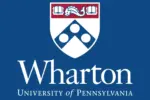Get the latest news & stories, innovative research, upcoming events, and more, from the ESG Initiative.
11 Social Impact Leaders Receiving Loan Forgiveness Awards in 2024

The ESG Initiative is pleased to announce the 2024 recipients of the John M. Bendheim Loan Forgiveness Fund for Public Service. Read More
Jean-Marie Meier on Wharton Business Daily

(Outlet: Wharton Business Daily) Jean-Marie Meier, Wharton Visiting Professor of Finance, joins Wharton Business Daily host Dan Loney to discuss new research on how ESG investing helps companies with consumers. Read More
R. Jisung Park on Wharton Business Daily

(Outlet: Wharton Business Daily) R. Jisung Park, Penn and Wharton Assistant Professor, joins Wharton Business Daily host Dan Loney to discuss his new book, Slow Burn, and the hidden costs of climate change. Read More
Knowledge at Wharton
Research and Insights
Get Involved
Get the latest ESG Initiative news, stories from Wharton and Penn, innovative research, podcasts, upcoming events, and more.


